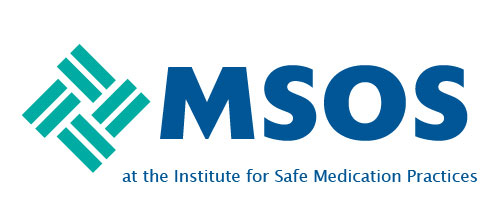 |
Medication Safety Officers Society 4374 Members Strong A society of healthcare professionals dedicated to improving medication safety in healthcare organizations |
 |
Medication Safety Officers Society 4374 Members Strong A society of healthcare professionals dedicated to improving medication safety in healthcare organizations |